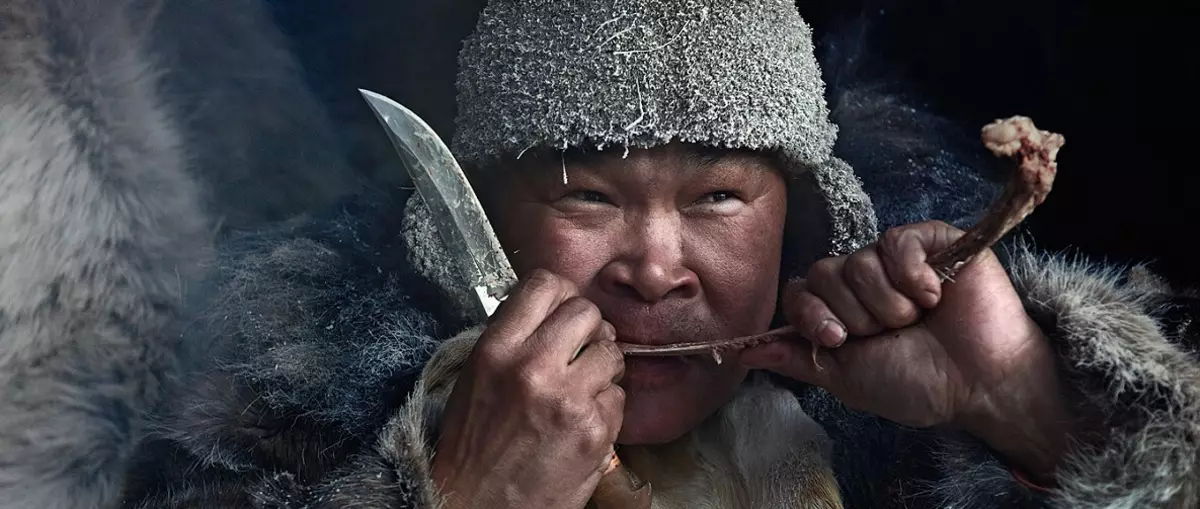
In Starin, Chukchi was called Loorravethlans, Chukotov. The times have passed, and the previous names remained only in historical sources, but the inhabitants of Chukotka themselves are faithful to their culture and traditional beliefs. The birth of this ethnos belong to the descendants of the tribes combined by a common totem, the community of fire, religious rituals and rites.
Modern Chukchi, like their ancestors, are divided into two types - nomadic reindeer herders and seaside hunters, industrial animals. Chukchi-dog breeders are considered a special category, which is breeding dogs for the harness, where the people travel through the snowy expanses. What does chukchi name mean? How was their story? And what can the culture of this people tell?
Ethnonym
The usual name "Chukchi" appeared not long ago. So several centuries ago, Russians and Yakuts began to call the main population of Chukotka. According to researchers, the name of the naming fell a word "chaood", which means "rich deer" in the Chukotka adverb.
That is the so-called reindeer herds. But, as I said, Chukchi has several groups that differ at the place of resettlement and type of activity. For example, seaside dog breeders called themselves Ankalyn (in the translation "Anka" means "the sea").
But Chukchi's self-catching was hardly heard. It sounds like a yevel, and "real people" translates. That is, Chukchi ancestors pointed out that they are true owners, "people" of their lands.
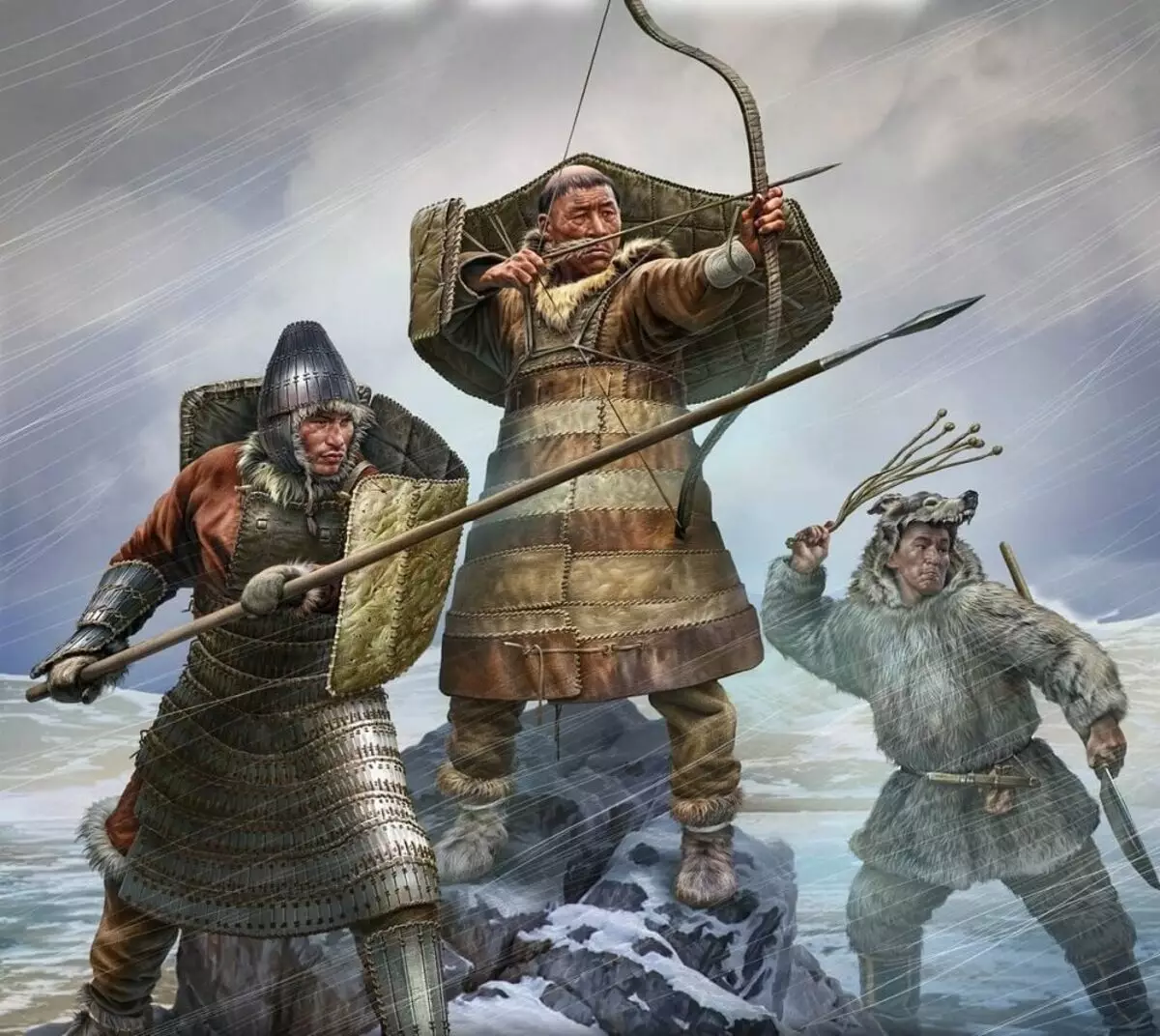
Features of language
The culture of this people refers to a mixed type, namely Asia-American. A number of legends and belief confirms the related links and the similarity of the customs of Chukchi and the Indians of North America. By the way, the vintage type of dog harness of the seaside tribes belongs to the American type in its design.
But in the Language Plan of Chukchi is related to Itelmen, Koryakov and Eskimos. Chukchi language is one of the narachi Kamchatka language family, belongs to the Paleoisian group. Before the appearance of Russians on Chukotka, Chukchi reminds a number of legends and legends, but a few confirmed facts have been preserved.
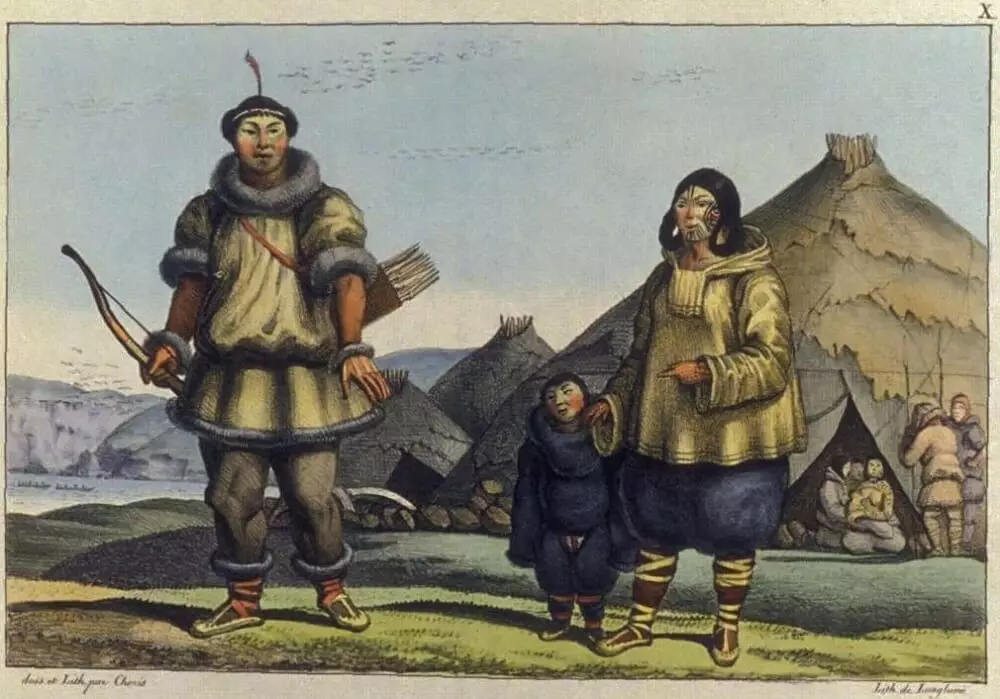
The reason for this is the absence of writing. Interestingly, in the first half of the last century, the Chukotka shepherd, Khaneville managed to create an original ideographic writing.
Such an original variety of written language, unfortunately, did not acquire widespread, but today is used today. Most Chukchi prefer to apply Cyrillic letters for writing.
Chukchi classes
Shortly before the emergence of Russian Chukchi, they were able to master the reindeer herding, which was later a source of trade. But you ask: how did the people of famous reindeer herders lived before? Everything is simple - for a long time, the traditional occupation of people in Chukotka was a deer hunt. Very clear was the fishery of the seaside chukchi. They lived at the expense of the marine beast: seals, nerve, walrles and whales.
Such activities required serious training and considerable physical forces. In addition, Chukchi had special hunting techniques. For example, on seals, people attacked on the shore when the beasts rested in the sun. Imitating the movements of the beast, Chukchi themselves gave themselves for seals, after which they attacked the selected animal.
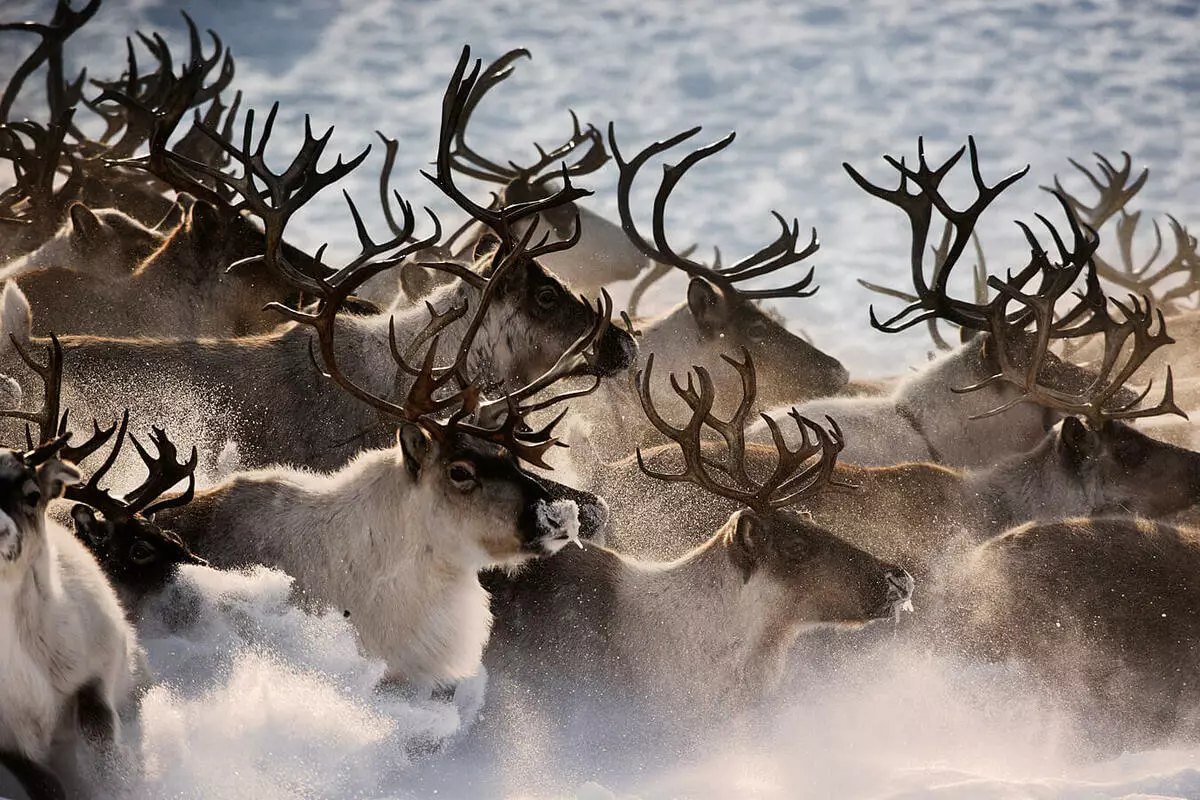
Traditional housing
Even today, the life of Chukchi retains a number of vintage features. From the XIX century, the tribes of reindeer breeders live in 2-3 cables. They were nomadic communities that had to periodically change pasture places as the deer exhaustion exhausted.
The traditional dwellings of Chukchi, which is being built in our time, is Yaranga. This is a big tent of an irregular polygonal shape. Such a house is ridicked by deer skins, which are fixed by stones, protecting the inhabitants of the dwellings from the wind. Inside the tent, in the center, there is a fire. This place is sacred, and Chukchi themselves compare their home from the universe, because of what and walking in it follows the movement of the sun in the sky.
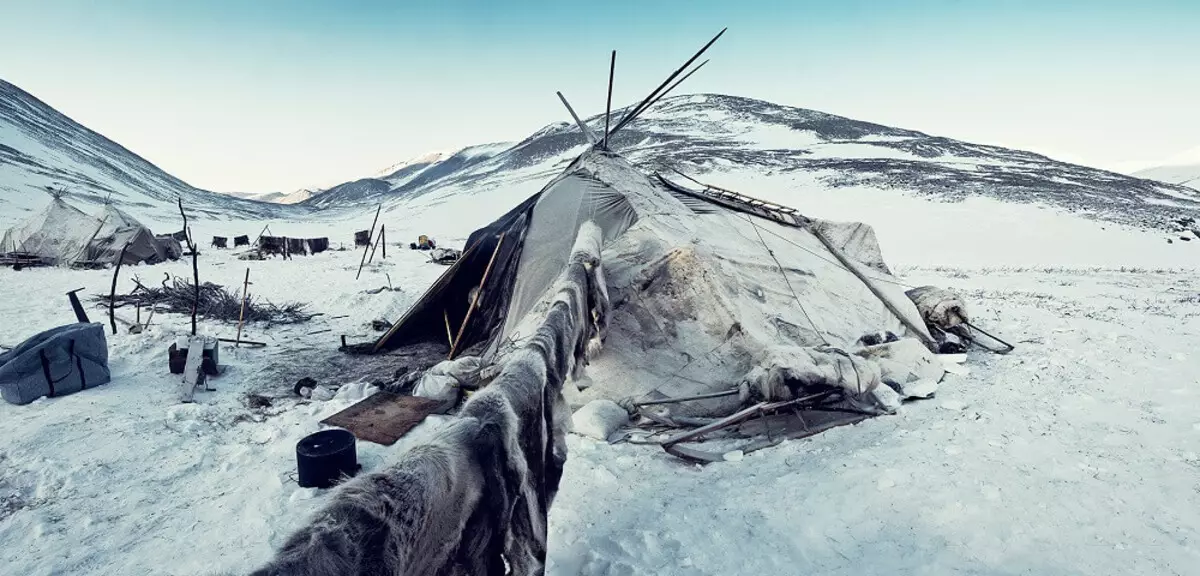
Holidays and Religion Chukchi
Chukchi culture is most brightly manifested during holidays and religious rites. The main festivities were considered seasonal festivities associated with the installation of the housing, the taste of deer, the wage of the Vazhenka.
The sacrifices of fire played a special role. In the harsh cold edge, the people especially appreciated the heat, which gives the flame, and therefore the fire often appears in the legends as a kind of deity, all-powerful spirit.
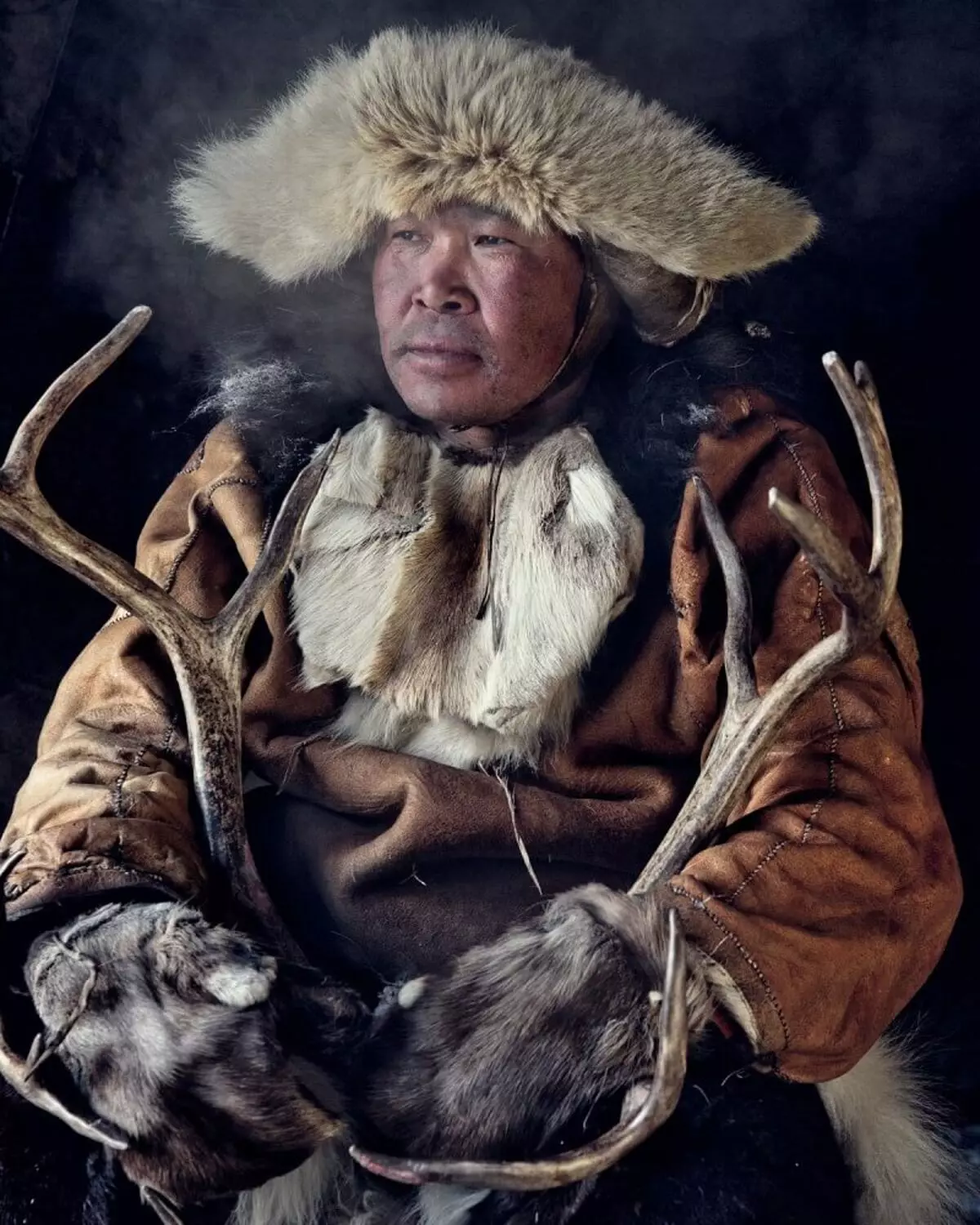
Traditional patterns that Chukchi are used to decorate clothing, shoes, quiver, according to scientists, have an Eskimo origin. Original beliefs preserved to this day are rituals of animism. Chukchi worship the forces of nature, deify the elements, honor the sacred animals (for example, crow and bear).
Many families of modern inhabitants of Chukotka have preserved antique shrines - special stones for fireing fire, which should have every person. They were used during rituals associated with the worship of fire and bringing victims to a sacred flame that gives heat, and therefore life. A number of tribes practiced an artificial "gender shift" when a man had to wear a female outfit and fulfill feminine duties on the housework - and vice versa.
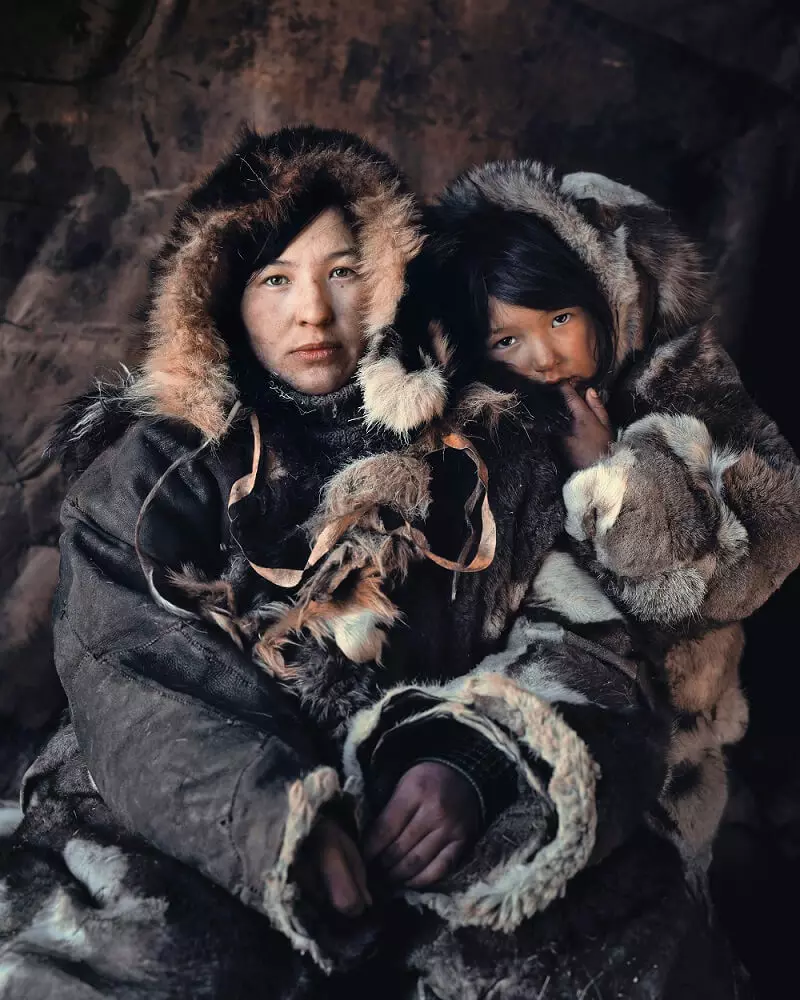
Chukchi is a unique distinctive people, which absorbed striking beliefs, culture and traditions of their ancestors and neighboring tribes. Travelers who visited the Chukotka Autonomous District or in Kamchatka, note that these places open a special color, which keeps the ancient religion and the secret knowledge of local peoples.
On the cover: Vladila Kavri, Arctic Tundra near Welkal, Chukotka, Russia, 2012 / © Jimmy Nelson / JimmyNelson.com
